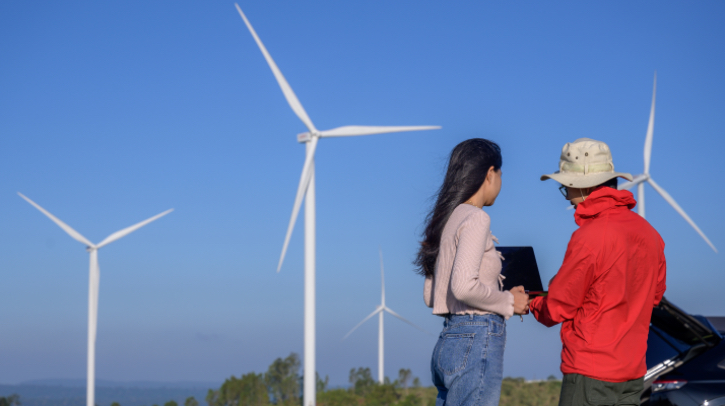The UK’s National Oceanography Centre (NOC) has delivered a roadmap to guide how scientists observe the ocean to increase their understanding of the potential impacts of expanding offshore wind developments on the marine environment.
The Scoping an Offshore Wind Sustained Observation Programme report was commissioned by the Scottish government’s Scottish Marine Energy Research (ScotMER) program, to help reach its 2045 net zero goals and inform the planning of significant offshore wind farm expansion within, but not limited to, the Scottish sector of the North Sea.
Key recommendations
The report reviews current knowledge of key environmental aspects of the North Sea, focusing on the water column structure and seasonal variability. It highlights knowledge gaps around potential offshore wind-related impacts and recommends key essential ocean variables (EOVs) to be used as a baseline and for future monitoring, to help protect the marine environment.
It recommends better access to and integration of existing data, prioritizing the acquisition of essential physical and biogeochemical indicators (EOVs) at regional and site-specific scales. It also highlights the need for observational parameters, such as those related to water column stability and stratification, saying they should be acquired using a range of monitoring platforms, including remote systems.
The report also states that computer model simulations are a key primary tool to predict the potential cumulative impacts of future infrastructures, and that models should first be built and validated using existing data and new data acquired during observational campaigns close to operational wind farms. The report also underlines the importance of improved stakeholder collaboration and joint industry programs to enable long-term strategic monitoring and clearer protocols for monitoring and modelling impacts.
Dr Michela De Dominicis, an ocean modelling senior scientist at NOC, said, “Relatively little is known about what impacts fixed and floating wind farms could have as offshore wind expands into deeper waters, with climate change adding further complexity.”
Dr Charlotte Williams, a physical oceanographer at NOC, added, “This step in understanding is what we need to baseline and then observe ongoing changes in the marine environment, which will then help to safeguard the health of our ocean.”
Scotland’s 2045 net zero goals
The report and its recommendations come as part of a broader Scottish government strategy to achieve net-zero greenhouse gas emissions by 2045. The Scottish government aims to add at least 20GW of new renewable electricity capacity by 2030, potentially generating about 50% of Scotland’s current total energy demand. There is currently about 3GW of offshore wind operational in Scottish waters. The Scottish government’s ScotWind leasing round is targeting a further 28GW across 20 projects, with another 5GW targeted in the Innovation and Targeted Oil & Gas (INTOG) round.
Half of these future projects are floating offshore wind developments, which will be placed in slightly deeper waters, where in winter they are mixed and in summer are stratified, or divided into different vertical layers that don’t easily mix.
According to the researchers, stratification and mixing are critical to how much phytoplankton there is. Phytoplankton forms the basis of the marine food web, delivering nutrients to where they are needed and underpinning the ongoing environmental functioning of the sea.
In related news, Monash University in Australia has identified easterly trade winds as a key cause of mass coral bleaching events in the Great Barrier Reef by analyzing more than three decades of atmospheric weather. Click here to read the full story.



